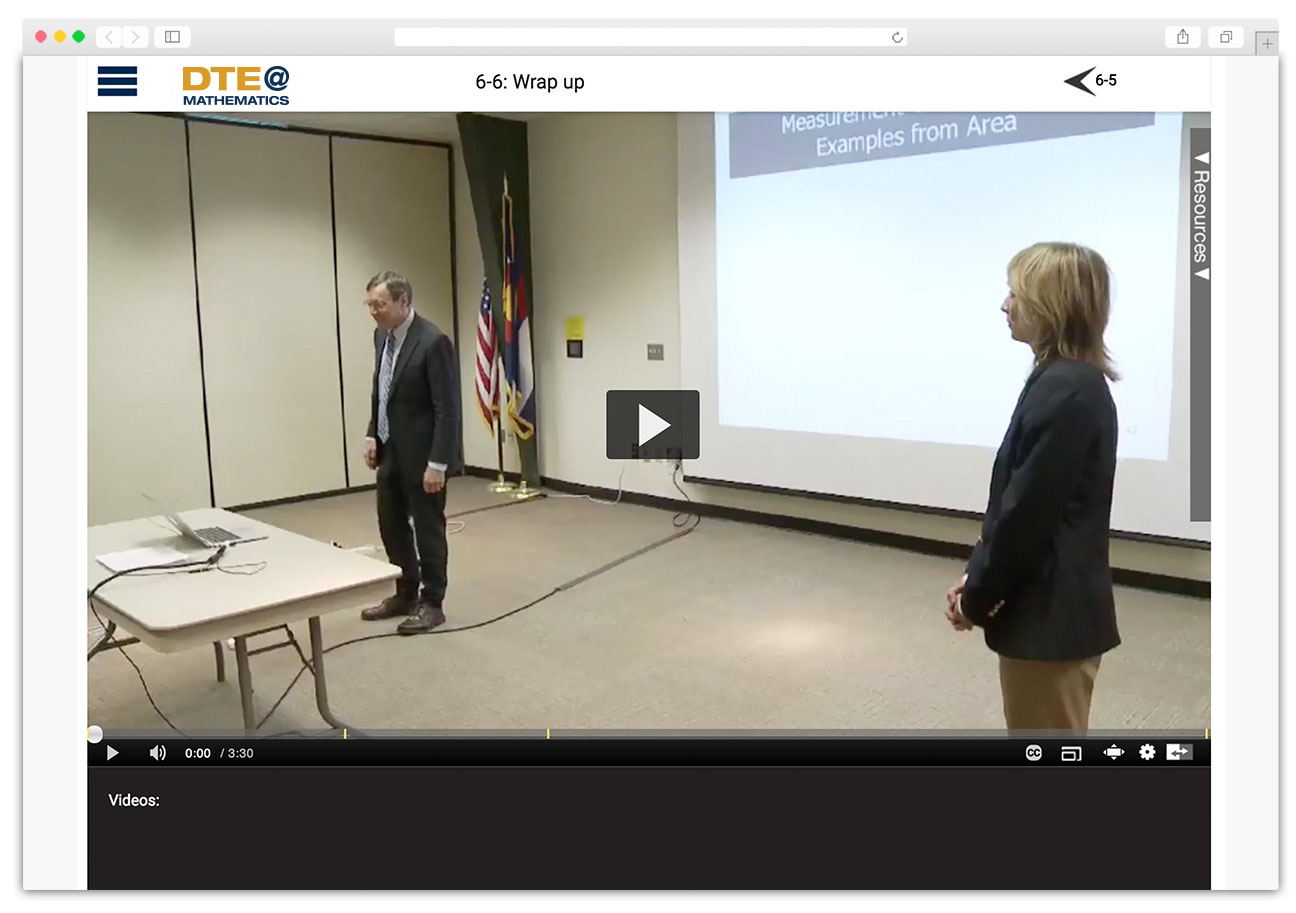Geometric-measurement - Session 6: Area Learning Trajectory – Instructional tasks and teaching strategies
Part 6: Wrap up
Overview
This part includes a review of the key concepts of measurement: attribute, conservation, transitivity, equal partitioning, units and unit iteration, origin, accumulation, and the relation between measurement and number.
Key Points
The eight key concepts listed above are foundational for all types of measurement. For example, regardless of the attribute being measured, all measurement involves selecting a unit and then iterating that unit (units and unit iteration). With length, the units are one dimensional, and they can be iterated by placing them end to end with no overlaps or gaps. With area, the units are two dimensional, but they can also be iterated with no overlaps or gaps to cover the entire surface of an object.
